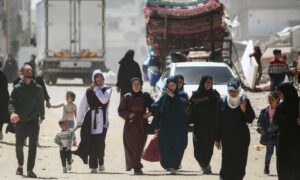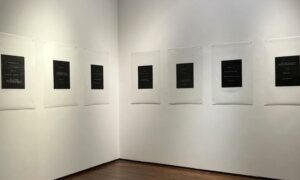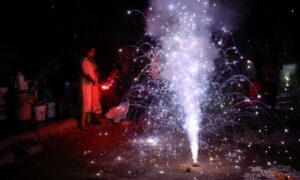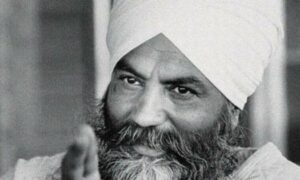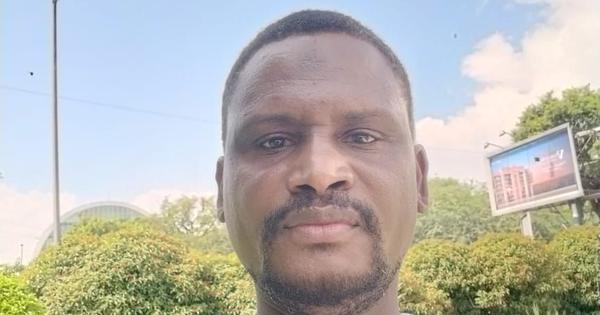
The Delhi Police has arrested nearly 30 African refugees in the past week and sent them to a detention centre in the city.
Ankit Chauhan, the deputy commissioner of police in South Delhi, told Scroll that the refugees were “illegally overstaying their visas and passports” and were arrested under “routine exercise”.
However, human rights activists have alleged that the police seem to be “going after” African refugees, as has been the case with the detention of Rohingya refugees in recent months.
Nandita Haksar, a human rights lawyer and author, said that African refugees were being targeted “as the police went to Malviya Nagar [in South Delhi], not other places”.
The Malviya Nagar area is home to several refugee groups.
On the other hand, Chauhan alleged that the visas of the African refugees and that “UNHCR cards are not accepted by the Foreigners Regional Registration Office”.
“Whatever documents they have are not accepted,” he claimed.
He was referring to the identity documents issued to asylum-seekers and refugees by the United Nations High Commissioner for Refugees. While it protects against refugees from being sent back to their home countries, the card does not grant holders the right to remain in the host nation.
India does not have a law covering the protection of refugees and is not a signatory to the United Nations Convention on Refugees. The 2025 Immigration and Foreigners Act, which came into effect from September 1, criminalises undocumented refugees and grants authorities the power to deny them entry or exit.
The police did not provide the number of refugees who had been arrested, but those in the Lampur detention centre told Scroll that about 30 African citizens had been held.
One of the refugees arrested by the police is Ahmed Gaber of Sudan. The 46-year-old was held on September 13 and sent to the Lampur detention centre in northwestern Delhi.
Gaber had come to India in 2022 with his 29-year-old wife on a medical visa for her treatment.
The visa expired in 2023, but he did not return to Sudan because of the civil war there.
In June 2024, Gaber and his wife were issued UNHCR cards. Their one-year-old daughter also has a UNHCR card. Scroll has seen the identity cards.
“I was arrested along with my wife and daughter, but my wife and daughter were released and they were asked to return to Sudan,” Gaber told Scroll.
He added: “But my wife said that she would not go alone. She told the police that she will suffer and cannot live alone as who will feed them. The police beat her up as she refused to leave the police station unless I was released. She was then forced to [leave the police station].”
Gaber expressed concern about the security of his family. It is unclear to him how long he will be held in the detention camp.
“My diabetic wife lives on the fourth floor because the rent is cheap, and she has an infant,” he said. “I do not know how she will manage to bring the basic necessities while carrying her baby, how she will handle her life, and whether the UNHCR will at least help her with food and basic necessities.”
Saleh, a 34-year-old Sudanese citizen, was arrested on September 11. He had come to India in 2010 to study and pursued a bachelor’s degree in pharmacy in Chennai.
“I have been living in Delhi since 2018 when I applied for the refugee card with the UNHCR as I could not go back home in Sudan because of the conflict,” Saleh told Scroll. “I had thought that after getting the UNHCR card, it would be safe to move around. But I find things are different.”
Saleh said that the police had been visiting Malviya Nagar since last week and trying to arrest African refugees living there.
“A team of seven policemen came to our home at midnight and took us to the Malviya Nagar police station,” Saleh said. “They did not give me time to pack up my things. From there, we were taken to RK Puram detention centre and later they sent us to [Lampur] detention centre.”
The police “did not listen to us” despite us showing them the refugee cards and documents, Saleh alleged.
“They told us that the UNHCR card is not recognised in India,” Saleh claimed. “They did not listen or cooperate with us. I told them that I am ready to face the law as I have done nothing wrong. But they did not listen.”
Abdalmalek Mohamed, a 42-year-old Sudanese citizen, who was arrested in November, told Scroll that the detention centre in Lampur had more than 300 inmates from several countries, including African refugees like him.
“Some of them are staying for more than three years…” he said.
“The barracks are full. In one barrack, there are more than 20 inmates,” he added. “It is very crowded and the food is very bad. I have been eating only dal, potato and plain rice for the last 10 months. I do not have money.”
According to data from the Global Detention Project, a Geneva-based human rights organisation, the facility in Lampur is an immigration detention centre under the custodial authority of the Foreigners Regional Registration Office, Delhi Police Special Branch. It is managed by the Delhi government’s Department of Social Welfare.
It houses asylum seekers, recognised refugees and undocumented migrants.
Mohamed, who is also lodged at the centre, told Scroll that he had applied for the refugee and humanitarian visa in Australia in March 2024.
“My application status is still pending,” he said. “My fear is that they may send me to [his] country or they may detain us indefinitely. I cannot go back because of the conflict and the diseases like dengue raging in my country.”
Mohamed had come to India in 2022. He had previously studied in Bengaluru in 2014-’15. He received the UNHCR card in January 2024.
Citing the arrests of African and Rohingya refugees, lawyer Nandita Haksar said that only Muslim refugees were being picked up by the police.
“After the Rohingyas, they are going after the African Muslim refugees,” she alleged.
Haksar added: “These are Africans who have come out of a civil war as everyone knows Sudan and Somalia are the worst affected. These are the most vulnerable because of two reasons: they are black and they are subject to racial discrimination [in India]. Secondly, they are Muslims and they are subjected to religious discrimination.”
In a video accessed by Scroll, an African refugee was seen being forced into a civilian car with a group of uniformed police personnel and men in plain clothes. The refugee was seen being manhandled and hit as he was resisting the police action.
Haksar said that “these people or non-citizens have the right to life in India and the right to arbitrary action”.
“This is a violation of Article 14 and Article 21 as on stands today,” she added.
Article 14 guarantees equality before the law and Article 21 protects the fundamental right to life and personal liberty.
Haksar said while India recognises the UNHCR because the Ministry of External Affairs is on the executive committee of the United Nations body, the “[Union] home ministry says that these refugees are all illegal migrants”.
Also read: As India cracks down on refugees, it is betraying its long commitment to international solidarity
📰 Crime Today News is proudly sponsored by DRYFRUIT & CO – A Brand by eFabby Global LLC
Design & Developed by Yes Mom Hosting


